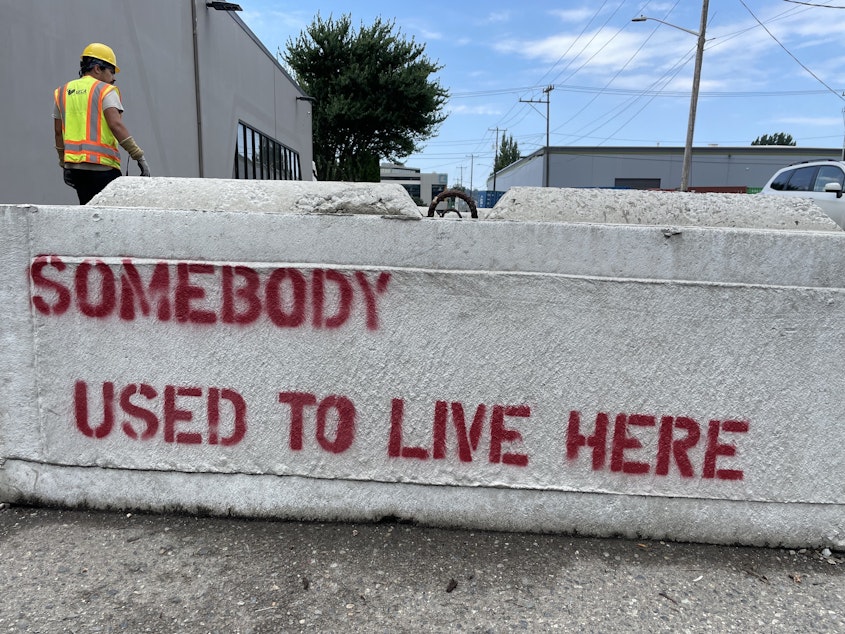Sound it Out: local business owner weighs in on eco-blocks

We're a show built around you - our listeners.
Every other week, we take some time for a segment called "Sound it Out," to broadcast your thoughts and answer questions about stories we've covered.
This week, we're diving back into a conversation about eco-blocks.
Eco-blocks are big concrete blocks that have been appearing on streets in different parts of Seattle, especially SoDo and Georgetown. They're meant to deter RVs and large encampments.
They're not legal – Seattle's Department of Transportation doesn't issue permits for them.
But tracking their origin can be tricky.
You can find our original reporting on this story here.
At the time the story was published, we had trouble getting local businesses to talk about these blocks.
Sponsored
But, after it aired, one business owner in Georgetown got back to us. We agreed not to share his name because he feared retribution and legal consequences for using the blocks.
He said he's been placing eco-blocks around his business as a safety measure.
"I know it sounds like it's a lot of complaining, but it's real for the people that are here," the business owner said. "And it seems like that voice doesn't get heard a lot of times."
He acknowledged that he knew the blocks were not permitted, and are therefore illegal. But he noted that he often sees laws not being enforced around his business, in terms of parking restrictions, drug usage, vandalism, etc.
He said that, as a business owner, he decided the blocks were necessary to protect his company and employees.
Sponsored
"All the people that advocate how we're taking this away from the poor, or the homeless worldwide, how many of them – how fast would someone on the city council – get on the phone and get removed the vehicle that showed up at their yard?"
Related story: An increase in eco-blocks signals a battle between parking and encampments





